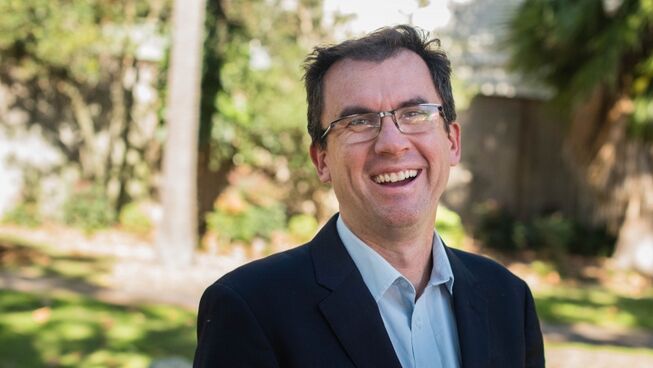
‘Cancel culture’ is a recent social phenomenon. The term was first used in 2016 and it describes the increasingly popular practice of publicly rejecting, boycotting or withdrawing support for (‘cancelling’) particular people or groups because of their unacceptable social or moral views and actions.
Cancel culture came into the spotlight during the Black Lives Matter protests that followed the murder of George Floyd. As part of that turmoil, statues of past public figures who had benefited from slavery or were deemed racist were toppled. Some were even calling for the cancellation of the children’s TV show Paw Patrol due to its connection with law enforcement.
Cancel Culture reveals several deep human intuitions that fit with what the Bible says.
Productions such as Gone with the Wind, an episode of Fawlty Towers, Summer Heights High (and other Chris Lilley works), 30 Rock and Cops were removed from streaming platforms because of perceived racism.
More recently, J.K. Rowling has become one of the highest profile celebrities to be ‘cancelled’ for insisting that sex-differences are still important designators of what it means to be a woman. In 2021 atheist champion Richard Dawkins was stripped of his Humanist of the Year award by the American Humanist Association for perceived insults to certain marginalised minorities.
Of course, there have always been protests, boycotts, of controversial figures, but cancel culture seems different—more vitriolic. But what is driving it, and what does it say about our culture?
I want to suggest that it reveals several deep human intuitions that fit with what the Bible says.
Humans Really do Believe in ‘Sin’
Some secular thinkers claim that sin is simply an invention and fetish of Christians trying to sell their ‘cure’. Indeed, leading atheist advocate Dan Barker claims, ‘we atheists don’t need to go to the doctor. There isn’t anything wrong with us.’ He was speaking in reaction to the idea of being painted as a ‘sinner’. He says that ‘sin is an imaginary disease, invented to sell you an imaginary cure.’
Yet the fact that certain people are cancelled for holding morally objectionable views indicates that humans really do believe in a thing called ‘sin’. There are views, perspectives, words and opinions in our culture which are morally objectionable—and by uttering them (or even believing them), you have become a sinner in the eyes of the mob. Cancel culture reveals that our world clearly believes in the reality of transgression.
Humans desire Moral Purity and the Removal of Sin
Cancel culture calls out certain sins, and then shows how strongly we desire to be separated from them—to have them removed from our presence. It reflects a deep human desire to be morally pure; to be cleansed of any connection with sin.
I noticed this in a tweet someone wrote about being connected with JK Rowling:
That unclean feeling you get when someone follows you and their bio is all “I stand with @jk_rowling.”
Girl, did you come to the wrooong place!
Just like in the Old Testament, people feel that being connected to, or touching, someone ‘unclean’ renders you unclean. It’s hard to live with ‘sinners’ in our midst—so people with unacceptable ideas have to be sent out into the wilderness.
The Difficulty of Separating Sin from Sinners
Cancel culture also shows how difficult it is to separate sin from sinners. In our current climate, sinners seem irredeemable—even if a sin occurred a long time ago, or in a different social environment, or seems minor (I recently heard of a cover band banning Van Morrison songs because of his views on COVID). Apologies don’t make much difference—the sinner still bears the stain. The only way to purify the camp, metaphorically speaking, is to remove the entire person from the camp—to purge them from our presence.
Cancel culture seeks to destroy sin, but in the process, it destroys people
This is because there is no mechanism in our culture to separate sin from sinners, and thus no forgiveness.
Cancel culture seeks to destroy sin, but in the process, it destroys people and creates relentless and unsustainable purity purges, allowing only ‘those without sin’ to participate in social dialogue.
The Bible’s Answer
In Old Testament, sin could be taken away by sacrifice. On the Day of Atonement, sin would be symbolically transferred to a scapegoat, which would be driven away from the camp. The camp could be purified without killing every sinner.
That was much better than what we have now, but it was only symbolic. It couldn’t really resolve our differences with God or each other. But now the New Testament shows us a real sacrifice:
For the bodies of those animals whose blood is brought into the holy places by the high priest as a sacrifice for sin, are burned outside the camp. So Jesus also suffered outside the gate in order to sanctify the people through his own blood. Therefore let us go to him outside the camp and bear the reproach he endured. For here we have no lasting city, but we seek the city that is to come. (Hebrews 13:11-14)
The world is still in the business of casting people out, just like it was back then. But Jesus has the answer. He was cast out and cancelled so we could be un-cancelled by God. He was exiled from the earthly city so we could be welcomed into God’s city to come.
So lets go to Jesus, be inspired by Jesus and show the world how his way changes everything.
Photo by Thought Catalog on Unsplash




